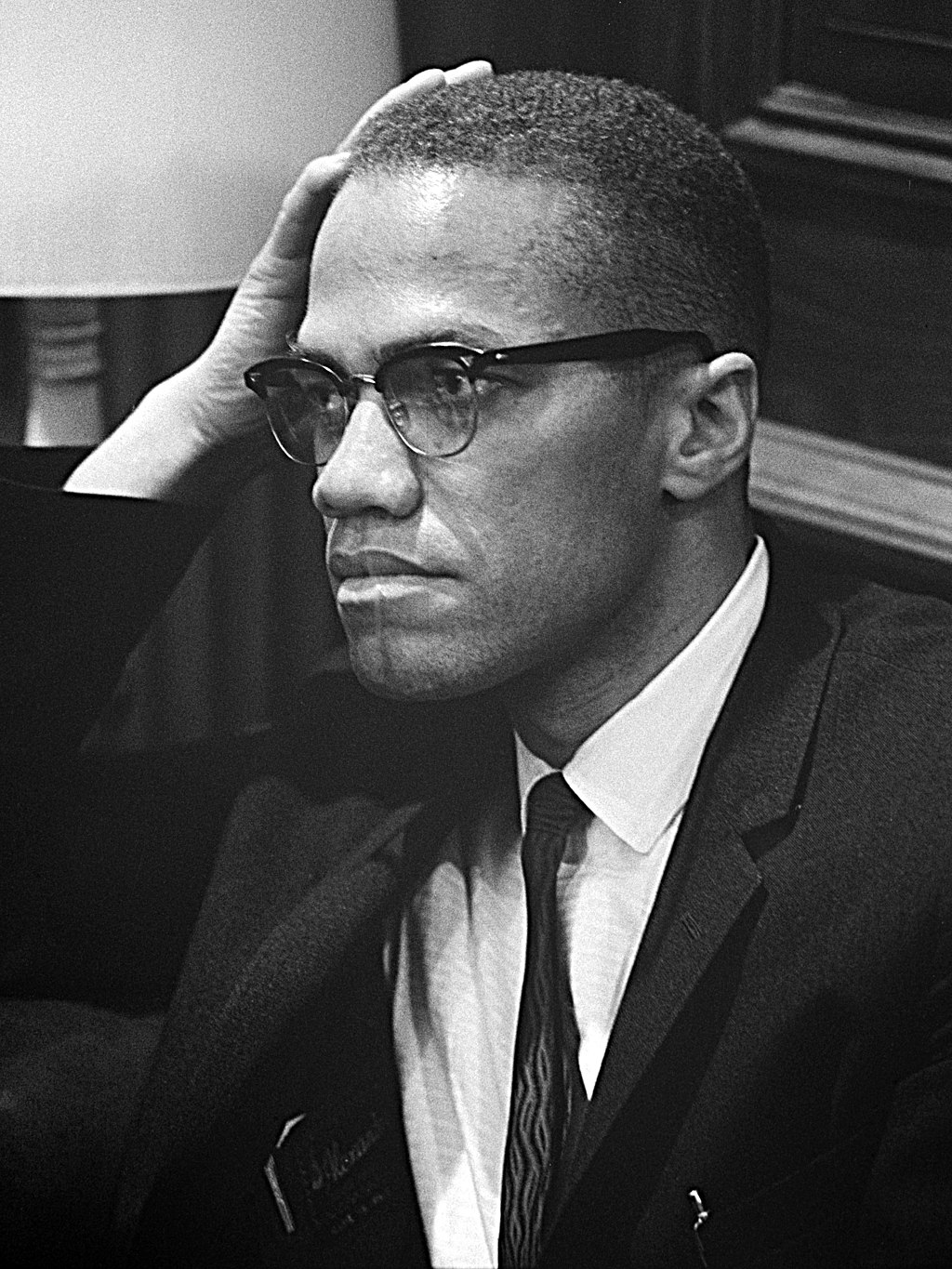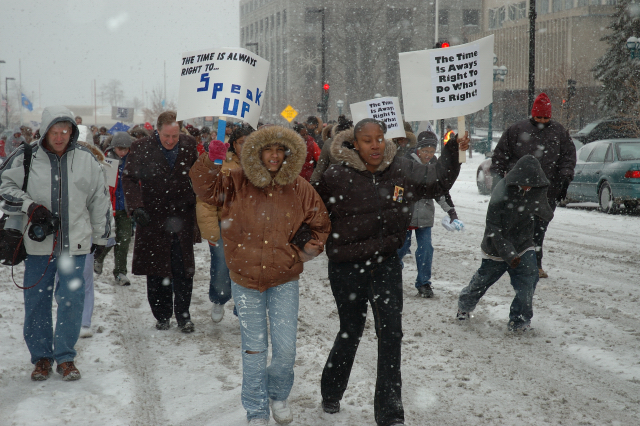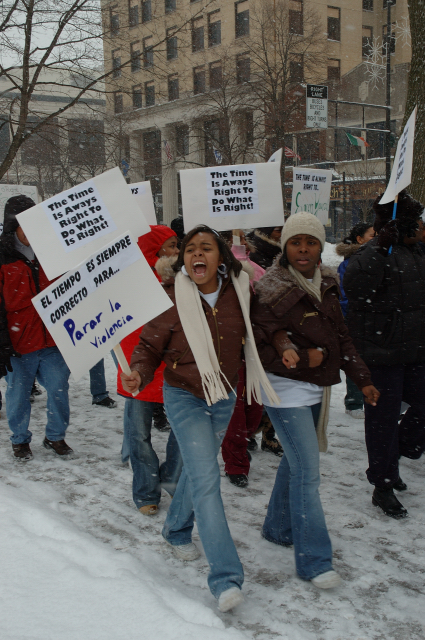
{*Did you know you can write on Elephant? Here’s how—big changes: How to Write & Make Money or at least Be of Benefit on Elephant. ~ Waylon}
~
With Malcolm X Day approaching, Malcolm and Martin have been on my mind.
I have been reflecting on what it was like to be a child in the 1960s.
I was born in Newark, New Jersey. When I was six, my father landed a promotion, which got us moved to an affluent, upper-middle-class, predominantly white community, where I spent the bulk of my youth and early adolescence.
When Malcolm’s name was on TV or in the headlines of The New York Times, I remember hearing complaints, curses, and grumblings under the breath of the adults in my life. I remember hearing words like thug, hate, militant, and more than anything else, the N-word. When he was murdered, they, the adults in my life, seemed happy and satisfied about this, as if they did something to make life better.
The narrative about Martin was not much different; I think the only thing that was different was they said the same words, but there wasn’t as much intensity and rage behind those words as there was with Malcolm.
I remember sitting with one of those adults one day while they were reading The New York Times. I asked them why there were so many famous people in the United States whose names were just three letters, with the last one being the letter K. Why were JFK, RFK, and MLK the only people whose names were three letters instead of two words? They mumbled something about the Kennedys and the N-word and turned the page.
Even though I didn’t really understand who Martin was or what he represented or stood for, something in my bones told me he was “good.” I didn’t really know or think much about it at the time.
When he was murdered, those same people, the adults in my life, all seemed really happy. When I asked questions about why he was murdered and why they were happy, there were more comments about black militants, safety, thugs, and the N-word multiple times. They “taught me“ about how dangerous he and people like him are. I wasn’t sure what they meant by “people like him,” but I guessed it had something to do with either being black or sounding really good when they had a microphone in their hands.
Here’s the thing, even then, as a little boy, some part of me knew everything they were telling me was a lie. And I wasn’t sure if they knew that they were lying and doing it on purpose, or if they didn’t know that they were lying and doing it out of ignorance. I just knew that they were lying. I knew the story they were telling me wasn’t true. I have vivid memories of seeing his picture and little snippets of him on television, and he just looked so beautiful! He looked beautiful to me in the same way that Roberto Clemente, Walt Fraser, Hank Aaron, and Muhammed Ali looked beautiful. It hadn’t occurred to me that what I was finding beautiful was extraordinary dark-skinned men; I just knew that they were beautiful.
It wasn’t until decades later when I was working at the Urban League of Greater Madison that it occurred to me I needed to update my story of Malcolm and Martin. Fortunately for me, I was surrounded by people who enthusiastically and passionately wanted to teach me about who they were, what they stood for, and why I was taught what I was taught. More than anything else, they were incredibly patient with me, my ignorance, arrogance, and what we now call white privilege. Meaning, I didn’t have to know about them because they weren’t necessary for my survival in the world. I could choose to not pay attention to them or their legacies
Two years after that, the Urban League of Greater Madison received a grant to create a federally-funded program called “Achieving Greatness through Service.” It was a program of engaging and supporting teens to create a series of programs to celebrate and honor Martin Luther King Jr. Day every January. I was offered this position and gladly accepted it.
I still have the image in my head of one of the years the kids decided we were going to march through the downtown of the city about inequality in education and the achievement gap. They made signs, and slogans, and identified leaders within their group to lead chants. That particular year, we had 412 kids carrying signs and marching in 21-degree weather with 17 inches of snow on the ground and more coming down by the minute!
Ironically, when I was marching in the middle of the pack of teens, I felt like I personally had achieved greatness for the first time in my life. This wasn’t the kind of feeling that got my chest to be big and powerful; it was that feeling that when we do something extraordinarily exceptional, a humbling grateful feeling permeates our whole being. The awareness that all I had to do was not get in the way and ruin this spectacular process. I achieved not ruining it.
Regardless of where I am in the world or the country at the time, the third Monday in January is always a special day for me. Except during the couple of years that I have been in Costa Rica on those Januarys, I make sure I wear the sweatshirt that the federal government sent to the leaders of our event and march.
When people ask me if I celebrate Christmas, New Year’s, Easter, Thanksgiving, Ramadan, Yom Kippur, or Buddha’s birthday, I give the same answer every time. “I celebrate the day I got sober in 1989, my birthday, and Martin Luther King Jr. Day.”
This year, I’ve decided to add Malcolm X Day, May 19.
Sometimes, the people we were taught were “our heroes“ turned out to not be heroes. Sometimes, we are taught that “those people” are the villains, and they turned out not to be the villains.
I continue to reflect on and explore who those people are for me. If you haven’t already, I invite you to do the same.
A couple of photos from the march I refer to:


~
{Please consider Boosting our authors’ articles in their first week to help them win Elephant’s Ecosystem so they can get paid and write more.}


 Share on bsky
Share on bsky




Read 0 comments and reply